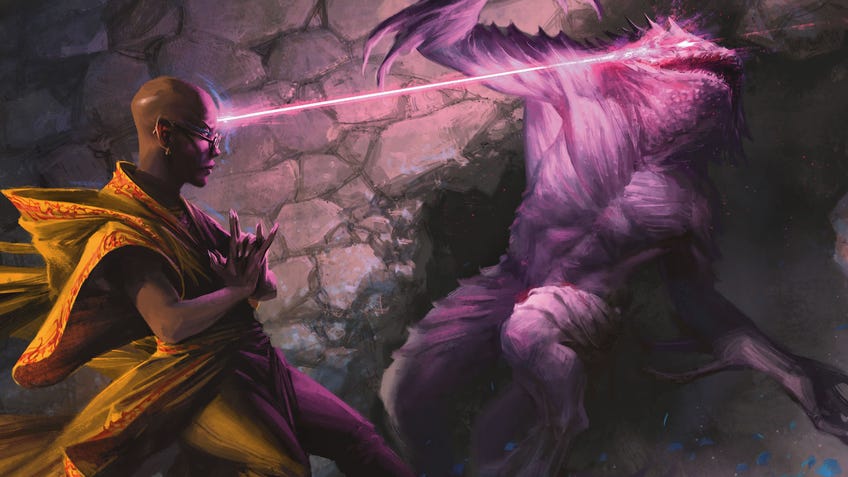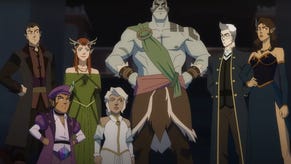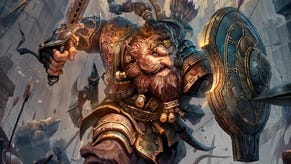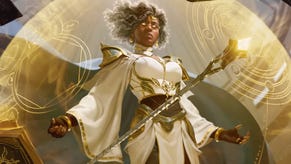Senior D&D producer says RPG’s execs “lost sight of the impact” OGL debacle would have on community
Wizards of the Coast’s tardy response “was a delay built out of many small, good decisions”, according to Kyle Brink.
Wizards of the Coast executive producer Kyle Brink partly blames the negative reception of the Open Gaming Licence on C-suite members of the popular tabletop RPG publisher disrespecting input from chief creatives such as himself.
Brink appeared on the 3 Black Halflings podcast February 6th and gave an interview discussing the fallout from Wizards’ attempt to update and modernise the OGL. Players and third-party publishers exploded in outrage for nearly a month, ending with the document’s eventual release into the Creative Commons. (Disclaimer: 3 Black Halflings co-host Olivia Kennedy is a member of the Dicebreaker video team.)
Amidst the ensuing discussion, Brink admits Wizards’ delayed and flippant response to a leaked draft of the OGL document should be blamed on the myriad stakeholders in Wizards and its parent company Hasbro. Like too many cooks in a kitchen, they reportedly all wanted a chance to throw their own input, critique and suggestions into the official response, exacerbating an already frustratingly slow communication.
“It was killing me that it was taking so long,” Brink told Kennedy and co-host Jeremy Cobb. “OGL 1.1 was a terrible way to approach the goals we had in mind, which is why it was such an easy U-turn for us to make. When you have a bigger community, you have a bigger duty.”
Brink claimed not to know who wrote one of the more infamous lines from Wizards’ first response on January 13th - “They won—and so did we” - but it supposedly motivated him to seek a more direct role in handling the situation further - hence why his name appeared on every successive blog post on the D&D Beyond forums.
Who composed the executive body that fumbled the initial response to the OGL document leak isn’t clear. Brink only names Wizards president and CEO Cynthia Williams - calling her a great listener and “very passionate”. The rest seem to be Hasbro legal counsel, stakeholders and non-creative management positions reacting in the interests of a massive corporation whose licences - such as Dungeons & Dragons and Magic: The Gathering - regularly post millions and billions in profit. He characterised this effect as “a delay built out of many small good decisions”.
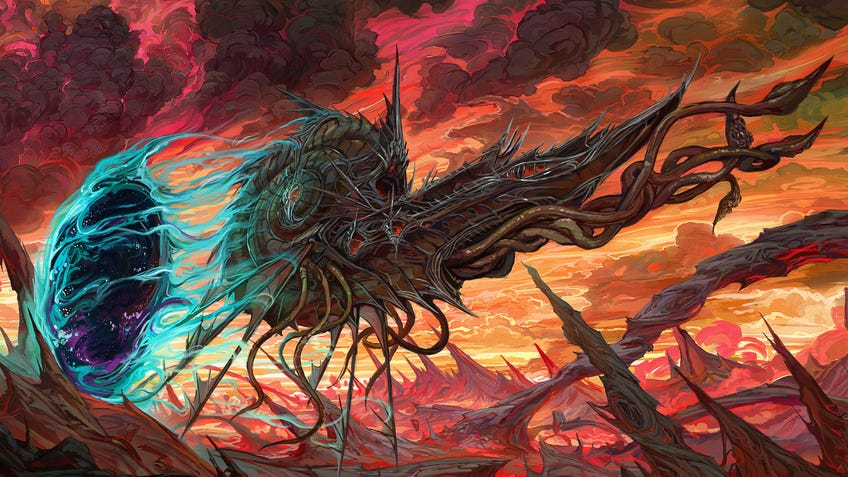
In fact, Brink claims the initial animus for modernising the OGL sprang from an executive worry at least three years ago regarding huge business interests. For example, Facebook’s nascent Metaverse might allow people to play tabletop RPGs together in a digital space without Wizards of the Coast at the table ensuring that version was “true to D&D”. Unspoken, of course, was the desire for royalty arrangements, as existed in a now-scrapped OGL draft.
“We still have a lot of real concerns about big corporations moving into the D&D space - new tech when the OGL was first considered, the emergence of some hateful content that’s coming around out there,” Brink said, referring to Wizards’ oft-stated altruism that the OGL’s strictures protected against hateful content and third-party NFTs.
Creative leaders won’t necessarily have any authority or decision making power, but Brink said he and his team will remain much more central to further discussions regarding the OGL - a position he regrets not having in the first place. “We lost sight of what the impact could be on the people we weren’t concerned about - who we wanted to thrive, who we wanted to help.”
Further interesting insights from the interview include a refutation that the mass cancelling of D&D Beyond subscription, a community protest effort early on, put enough financial pressure on Hasbro and Wizards of the Coast to force their hand. Brink says legal decisions like these more relatively slow through the company’s legal process, again referring to the large number of stakeholder voices pushing to be heard on important issues such as this one.
He also denied any plans to release OneD&D’s eventual final form - currently slated for 2024 - as something separate from SRD 5.1 and its indelible ties to the Creative Commons. Any new rules updates will add text directly to the SRD or include “bridging language”, such as replacing mentions of ‘race’ with ‘species’. He “doesn’t see the value” in reviving the OGL style of legal document for any further tabletop creations when the Creative Commons suits their needs just fine.
Whatever happens next, Wizards will be relying on its community to embrace a watchdog role to stop harmful content and bad actors from becoming entrenched in the creative community. When asked about a content policy that explicitly defines what “harmful” means to the company, Brink said they are currently developing one that is adaptable and can be changed over time as, in his words, the world continues to wake up to reality.
